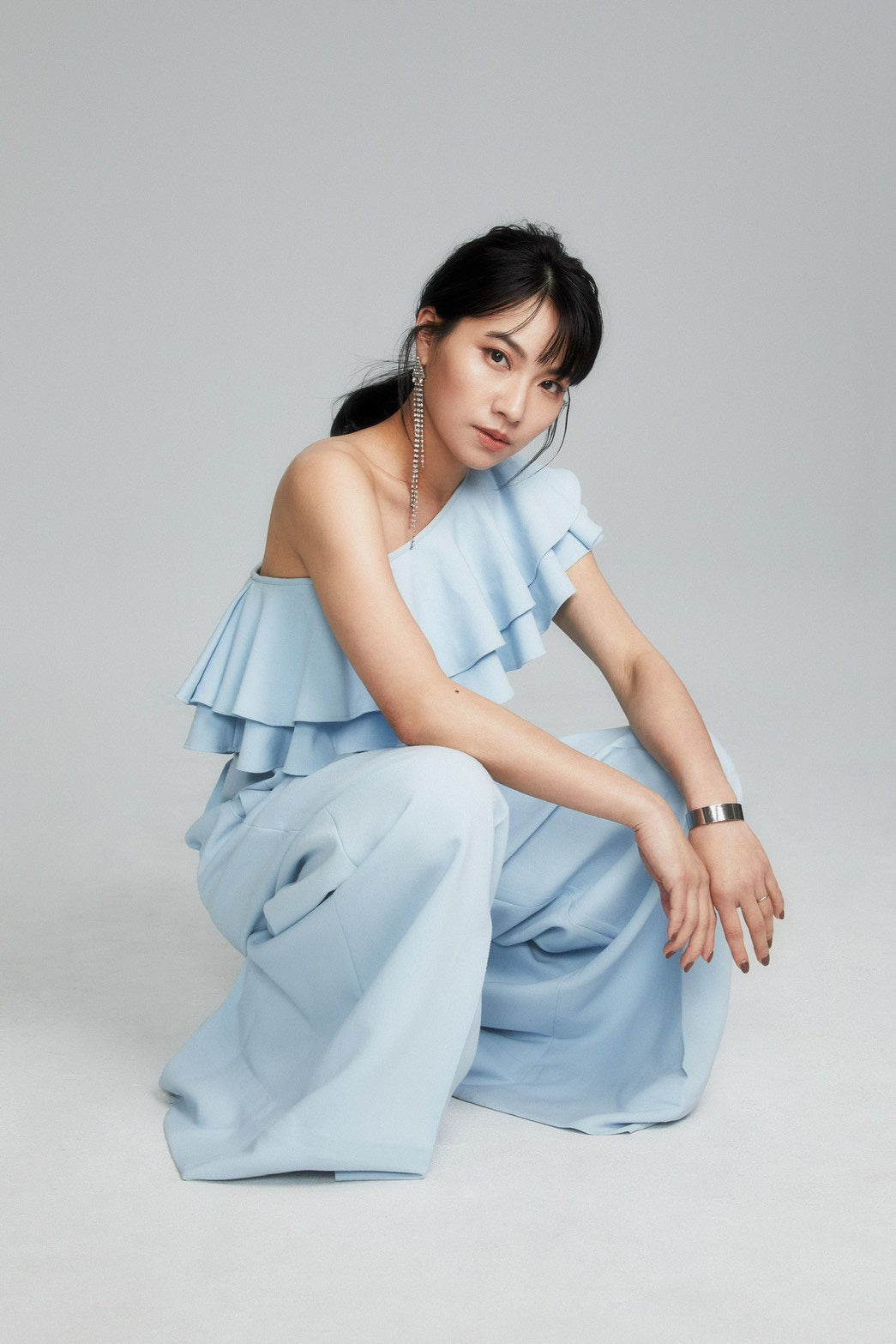:
A Girl Who Learned She Deserves to Be taken care of too

You worked your way up from a salon assistant to a brand and talent manager. Looking back, what was the hardest stage?
The hardest part wasn’t the physical work — it was “not seeing myself.”
Every day I helped others look beautiful and watched them smile at themselves in the mirror,
but I often forgot to ask, “And what about me?”
I used to believe that “beauty” belonged to my clients — something meant for others, not myself.
Then one day, while choosing hair colors for a customer, she suddenly said,
“You should try this shade too, it would look great on you.”
At that moment I realized: I had never really been taking care of myself.

Many people are curious — what does a brand or talent manager actually do?
The truth is, the job is much more complicated than people think.
You handle booking jobs, negotiating collaborations, planning schedules, managing incidents,
and on top of that, you become the “lightning rod” — absorbing emotions, pressure, misunderstandings, and everyone’s expectations.
It might look glamorous on the outside, but the exhausting part
is all the unseen communication, coordination, and responsibility behind the scenes.
In a single day I often switch between a dozen roles — assistant, negotiator, therapist, firefighter.
The saddest part isn’t the hard work; it’s staying calm in chaos so everyone can feel, “It’s okay, I’ve got this.”
What was the most stressful incident you’ve ever dealt with?
There was a project that got overhauled at the last minute — timeline, budget, content, everything had to start over.
The brand was anxious, the artist was anxious, and I was stuck in the middle, taking in everyone’s emotions before they exploded.
I remember crying on the roadside in the middle of the night, then wiping my tears and going home to redo the proposal.
But in that moment, I understood something — being a manager isn’t just a job;
it’s a form of strength you use to hold other people up.
After that experience, I became tougher, and I learned to distinguish what responsibilities were mine, and what weren’t.

From “making others beautiful” to “becoming confident yourself,” what changed the most for you?
I learned that beauty isn’t for others — it’s for myself.
I used to care so much about people’s opinions and wanted to blend in or be liked.
But eventually I realized that kind of beauty is exhausting.
Now, I prefer the “natural me.”
Sometimes I’m bare-faced, sometimes my hair is messy — but I know I’m living.
I think real beauty is when you stop asking others, “Is this okay?”

Your job and appearance both give you a strong presence.
Have you ever been afraid of how people see you?
Yes. Especially in the social-media era, where people look at photos and labels faster than they try to know the person.
Sometimes I wondered: Am I too bold? Too distant?
But eventually I learned how to express myself gently.
I can be opinionated and still be soft;
I don’t need to perform a version of myself that others prefer.
It took me years, but now I can say: “I like who I am.”
How do you define “beauty”?
Beauty is a state of being, not a facial structure.
Beautiful people aren’t necessarily the ones with perfect features —
they are the ones who know what they’re doing with their lives.
When you’re genuinely living and doing what you love, that glow can’t be hidden.
Now when I see girls who are a little chaotic, busy, messy-haired — to me, they are incredibly beautiful.

If a girl still can’t face the mirror confidently, what would you tell her?
I want to say:
“Don’t rush. Learn to love your imperfections first.”
No one is born confident.
Confidence is built little by little — every time you treat yourself kinder, every time you believe in yourself more.
If you don’t love the girl in the mirror yet, that’s okay.
Just remember — you’re becoming her.
How do you feel when you wear HÁI?
Honestly, I was shy at first (laughs).
HÁI’s designs are so close to your body — they don’t let you hide.
But once I put it on, I felt relaxed,
as if I no longer had to pretend to be perfect.
I love how the fabric sits against my skin and makes me feel grounded.
It reminds me that softness is also a form of strength.
In HÁI, I feel whole.


0 comments